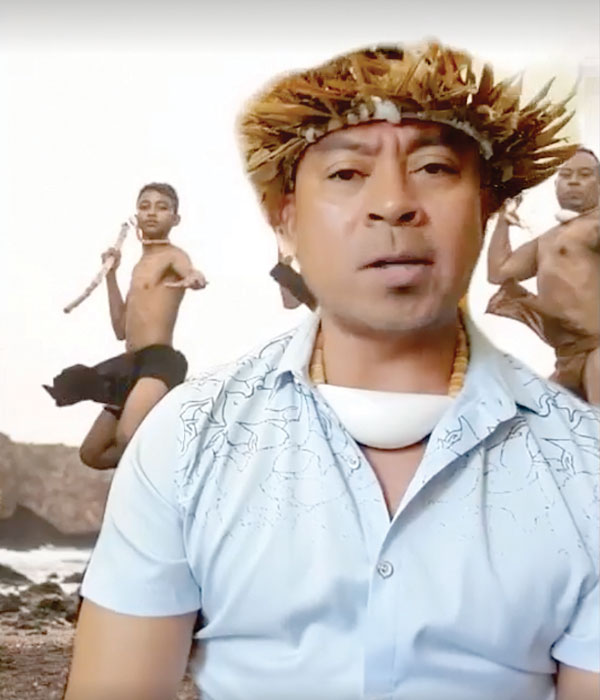Gonzales defends indigenous ownership

Screengrab shows Northern Marianas Descent Corporation president John Gonzales during last Friday’s State of the US Colonies discussion panel with leaders from American Samoa, Guam, Puerto Rico, and the U.S. Virgin Islands. (CONTRIBUTED PHOTO)
“Absolute sovereignty does not mean that we should relinquish our timeless, decades-millennial-generation-old connection, irreparable connection, unequivocal connection, unconditional, inseparable connection to our land, water, sea, and air.”
Thus said Northern Marianas Descent Corporation president John Gonzales last Friday, Feb. 25, as he joined leaders from American Samoa, Guam, Puerto Rico, and the U.S. Virgin Islands on a discussion, hosted by the Power4PuertoRico Coalition, on the State of the US Colonies.
Speaking to “defend the rights of indigenous ownership,” Gonzales talked about the execution of the Covenant (U.S. Public Law 94-21, where the Northern Mariana Islands became a Commonwealth, in political union with the United States), particularly on the military use of the land.
“In that covenant, it says that two-thirds of Tinian and just a little bit of acreage of the piers in Tanapag Harbor will be used as staging grounds for the United States to build and do training, strategic practices, for its military defense on forward,” Gonzales said.
“Lest we forget, the United States has used our islands as dumping grounds for UXOs (unexploded ordnance) and to this date, the United States has reneged on its moral obligation to clean our islands of the military dump and waste that litter through our islands,” he added.
Gonzales said the NMDC, in a show of resistance, alongside other nonprofit organizations, have worked, fought, and sued the United States in federal courts for environmental justice.
“They promise us that they’re going to consult with us—free, prior and informed consent. The fact of the matter is in our indigenous cultures, putting up a CD worth thousands and thousands of pages, putting it up on online platforms for people to review it without face-to-face consultation, is an insult,” Gonzales said. “[It] is a smack on the authenticity of the United States because our culture requires that we sit together and confer and consult and discuss and dialogue and discourse, and then amicably reach a decision. That has never been the case. …We need to at least get down to the basics and confirm and consult with free, prior and informed consent.”
The NMDC president also called on those who call the islands home to reach out to policymakers, leaders, and other nonprofit organizations, adding that the territories need to have a seat at the table to get the chance to correct the wrongs that have been systematically practiced and deliberately done by the United States.
“It is only until we hold hands and become inseparable can we…educate and make the United States informed…but more importantly, that we finally get the chance to truly, authentically, ingeniously, exercise our right to self-determination that respects our cultural, indigenous, tribal connection to our land, air, sea, and water.”























